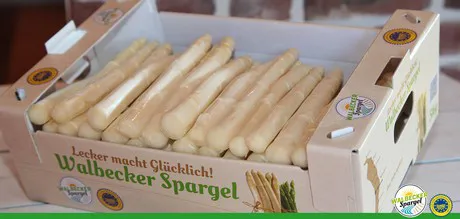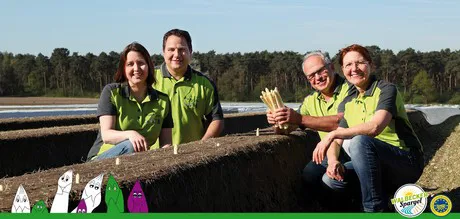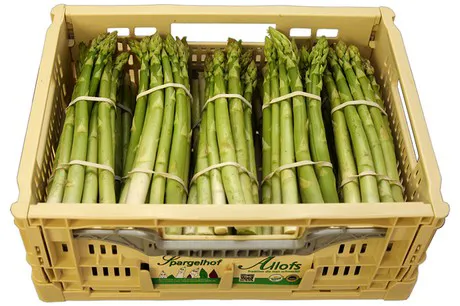This year's asparagus season promises to be exciting. After several years of weather and yield problems, combined with a declining consumption by the younger generations, this year's problems are of a completely different nature. The corona virus has Europe firmly in its grasp, borders have been closed, preventing the entry of guest workers, and the closure of restaurants and hotels means that an important sales market has been lost for the time being. In spite of all this, Franz Allofs, from the Allofs asparagus farm in Geldern-Walbeck, which today begins its outdoor harvest, is optimistic.
"The quantities are still small, but after Easter the harvest will really start. But that is certainly not what people want to know," Allofs said with a smile - not without good reason. After all, the big issue in the sector at the moment is: Is there enough manpower for the harvest? "At the moment there are still enough workers, but after Easter we'll have to see how things go on. We only have workers from Poland and many are now very afraid to travel. These are longstanding, loyal employees with whom we are in good contact. This year we have to get along without some of them."

For several weeks now, politicians and players in the fruit and vegetable sector have been asking whether unemployed employees from the catering trade, students on leave of absence or employees on short-time work could help with the vegetable harvest in Germany. According to Allofs, a pleasing number of people had responded to this call. However, he said that it was not quite as easy as one might imagine: "We have already hired German employees for peeling and picking who spontaneously contacted us. But the problem is that these people can only give us firm promises until the end of April and then it is hardly worthwhile to train them". Self-employed people, for example freelance artists, would not have this restriction and can commit themselves until the end of the asparagus season on June 24th: "Of course we hired these people immediately."
We'll have to wait and see how the sales go. Private sales in small quantities have been good so far. "It would of course be impractical if we could get enough workers together and the asparagus would not be sold. The situation is so bad at the moment that we are living from hand to mouth in every respect." He said, for example, that he hadn't prepared all his cultivated areas so that the amount of work would not exceed the possibilities of the helpers or the sales force. If necessary, these areas can be harvested afterwards. "So we have some losses but you have to prioritize and make the best of it."
"Every day is a different situation, every day there is something new, every day another border or market closes and we have to find a new gap," Allofs sighs. The associations are the most important supporters of the producers in these times. "The associations make the greatest effort in terms of advice and do their best to ensure that there are always enough staff. So I would like to take this opportunity to express my thanks."

However, despite all his efforts, he certainly expects that some areas will not be cleared this year. "On June 24th, we'll see how the season goes. So much is changing that it's impossible to make a statement at this point." Before Easter, Allofs is hoping that prices will rise somewhat, after last week's volumes were too large and the prices too low. "We have a pure cost price of €4,50 per kilo and the market is completely regulated by supply and demand - so we have to make sure to cover our costs." Franz Allofs does not think much of cheap offers: "There are always people who want to undercut the others. But then there are the companies that die off over time. We must be able to cover our costs to keep the asparagus culture alive in Germany. Every year is different, every year is exciting again, but that's also the beauty of growing asparagus."

For more information:
Franz Allofs
Spargelhof Allofs
Broecksteg 5
47608 Geldern-Walbeck
Tel.: +49 0 28 31 / 33 82
mail@spargelhof-allofs.de
www.spargelhof-allofs.de
